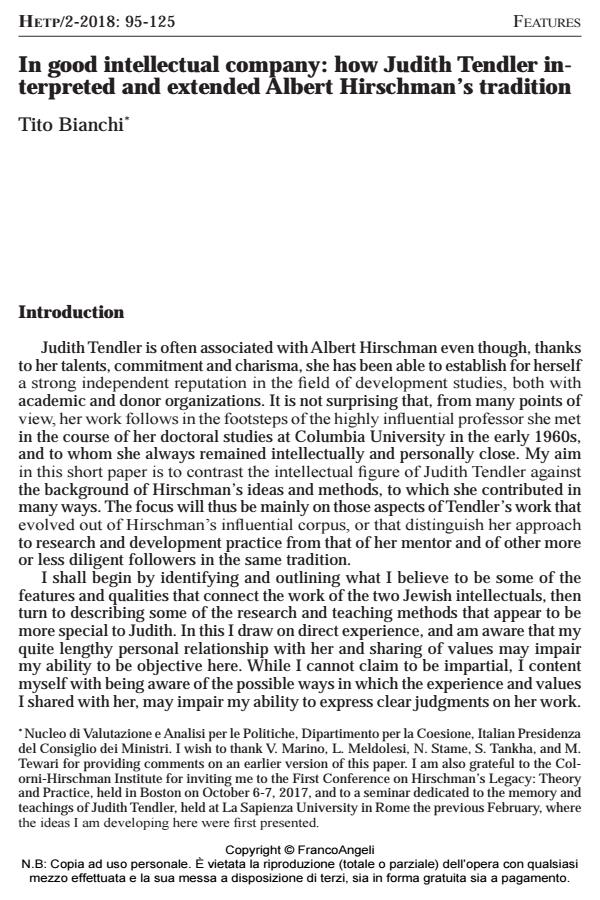In good intellectual company: how Judith Tendler interpreted and extended Albert Hirschman’s tradition
Journal title HISTORY OF ECONOMIC THOUGHT AND POLICY
Author/s Tito Bianchi
Publishing Year 2019 Issue 2018/2
Language English Pages 18 P. 95-112 File size 224 KB
DOI 10.3280/SPE2018-002005
DOI is like a bar code for intellectual property: to have more infomation
click here
Below, you can see the article first page
If you want to buy this article in PDF format, you can do it, following the instructions to buy download credits

FrancoAngeli is member of Publishers International Linking Association, Inc (PILA), a not-for-profit association which run the CrossRef service enabling links to and from online scholarly content.
Many associate Judith Tendler to her more famous teacher and mentor Albert Hirschman. This article contrasts her intellectual figure against the background of Hirschman’s world famous ideas and methods, describing her main contributions to this tradition. For more than 40 years Tendler has worked in development economics first as a research analyst and advisor to international development agencies; subsequently as a university professor at the MIT department of planning. Her academic and professional production prove in real world situations the usefulness of Hirschman’s main economic constructs - linkages, inducement mechanisms, and latitude in performance - as tools for policy evaluation, analysis and design. The very personal methods she employed in research and professional work testify how this approach re-interprets the figure of the policy maker, requiring from her higher competence, creativity, and sophistication.
Keywords: Development Economics; Albert Hirschman; Judith Tendler; Linkages.
Jel codes: B30
Tito Bianchi, In good intellectual company: how Judith Tendler interpreted and extended Albert Hirschman’s tradition in "HISTORY OF ECONOMIC THOUGHT AND POLICY" 2/2018, pp 95-112, DOI: 10.3280/SPE2018-002005